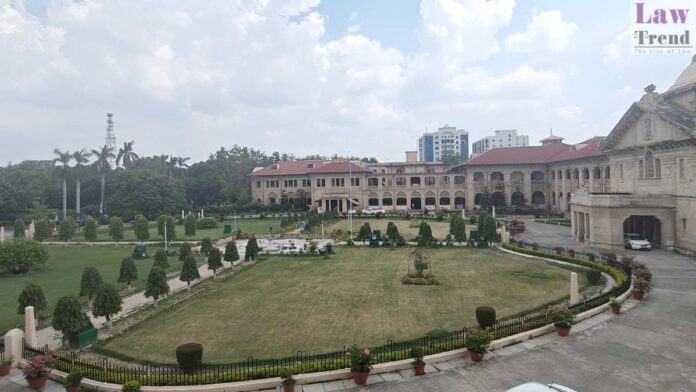In a significant ruling on the implementation of nutrition schemes for vulnerable groups, the Allahabad High Court has directed the Uttar Pradesh government to distribute hot cooked meals and take-home rations under the Integrated Child Development Scheme (ICDS), as originally mandated, rather than relying on the current dry nutrition model.
A Lucknow bench comprising Justice A.R. Masoodi and Justice Subhash Vidyarthi passed the order while disposing of a series of public interest litigations (PILs), including one filed by Lakhimpur resident Shipra Devi, challenging the deviation from the prescribed nutrition delivery model under the ICDS.
The judgment, reserved on July 29, comes amid growing concerns about the quality and adequacy of nutrition being provided to children under six years of age, pregnant women, and lactating mothers—the primary beneficiaries of the decades-old scheme.
The PILs argued that the state’s shift to distributing dry ration through local self-help groups (SHGs) undermined the essence of the ICDS, which envisages hot cooked meals at Anganwadi centres and supplementary take-home rations to address malnutrition. The petitioners contended that the government’s policy not only contradicted statutory mandates but also compromised nutritional outcomes for the most vulnerable.
While the Uttar Pradesh government defended the practice by asserting that decentralised SHG-based distribution was efficient and tailored to local needs, the court found this reasoning insufficient. It acknowledged the positive role of SHGs in empowering local communities but held that such policy innovation must not come at the cost of statutory compliance.
“The Integrated Child Development Scheme, a 50-year-old initiative, must be implemented in its true sense,” the bench observed. “Empowering SHGs is a welcome approach, but it cannot justify the violation of statutory mandates and provisions contained in the relevant rules and regulations.”
The court’s ruling is expected to have far-reaching implications for nutrition delivery systems in the state and could serve as a precedent for other states following similar dry ration models in place of cooked meals.




